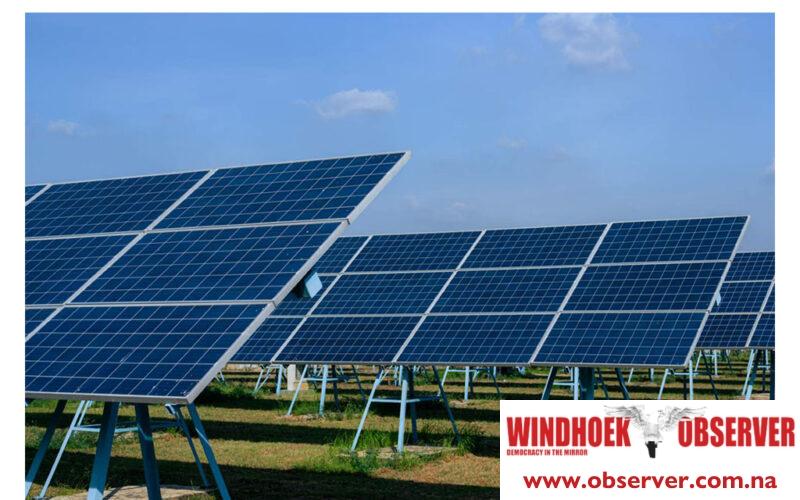Hertta-Maria Amutenja
NamPower’s Senior Manager of Generation Projects, Ben Mingeli, emphasised the importance of Battery Energy Storage Systems (BESS) in mitigating potential intermittency issues.
Mingeli said this earlier in the week during the ceremony for an Engineering, Procurement, and Construction (EPC) contract for the 100 MW Rosh Pinah Solar Power Plant.
Mingeli said NamPower anticipates challenges in managing intermittency from renewable energy sources, particularly solar, as the company expects solar capacity to exceed 100% of midday demand in the coming years.
To address these challenges, the utility is developing and constructing Battery Energy Storage Systems (BESS), including the 54MW Omburu BESS near Omaruru and the 45MW/90MWh BESS at Lithops Substation.
“To mitigate intermittency and maintain grid stability, NamPower is developing and constructing Battery Energy Storage System (BESS) projects such as the Omburu BESS with a capacity of 54 MW (1 hour of storage), to be located at Omburu substation near Omaruru Town, and the 45 MW/90 MWh BESS to be located at Lithops Substation,” said Mingeli.
Besides the two BESS projects, NamPower will need to roll out additional BESS projects as well as implement solar plus BESS projects in the future.
He said that despite the above challenges, NamPower is investing in renewable energy as part of its strategy to ensure energy security and self-sufficiency.
The utility is aiming for 80% self-sufficiency by 2028, in line with the goals outlined in the National Integrated Resource Plan and the National Energy Policy.
Managing director of NamPower, Simson Haulofu, underscored the significance of these projects for Namibia’s energy future.
“The Rosh Pinah 100 MW PV Project is more than just another plant; it represents our commitment to clean energy and reducing our carbon footprint,” Haulofu stated.
The project, funded through a N$1.6 billion investment, includes a N$350 million allocation for local subcontracting.
China Jiangxi International, in partnership with China New Energy, has been selected as the contractor for the project.
Deng Yan, managing director of China Jiangxi International Namibia, spoke about the company’s experience in renewable energy, including their work on the largest solar plant in East Africa.
“We are pleased to bring our expertise to this project in Namibia, which will contribute to the country’s renewable energy targets,” Yan said.
By the second quarter of 2026, the 100 MW Rosh Pinah Solar PV Power Plant should be operational, employing up to 800 local workers during its peak construction phase.
NOTE *Earlier in the week, the Windhoek Observer incorrectly reported that Mingeli expressed concerns about Namibia’s increasing reliance on solar energy and the challenges it poses for the country’s electricity supply system. The Windhoek Observer apologizes for the earlier error and any confusion it may have caused.




